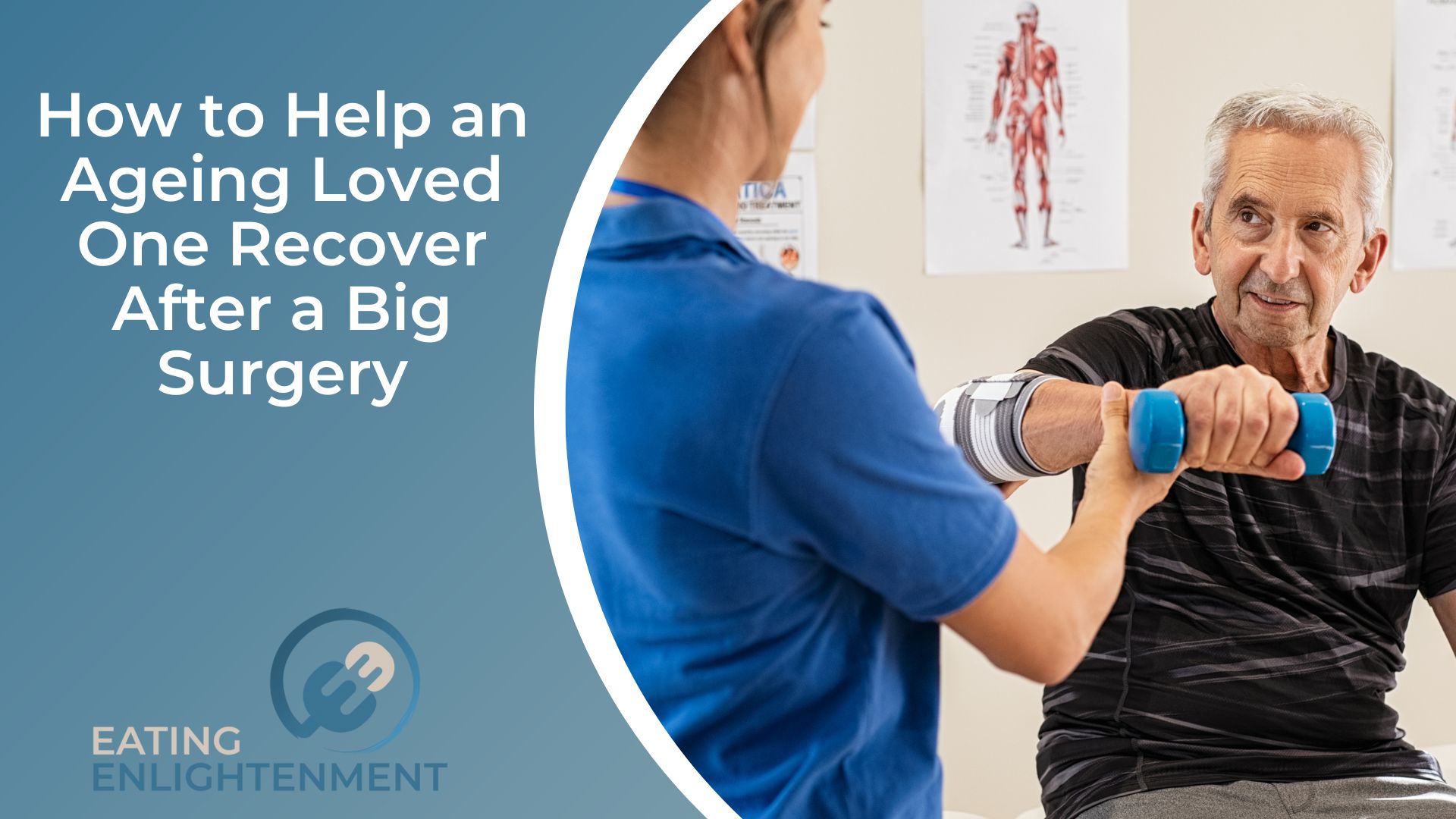When a cherished aging family member undergoes a significant surgical procedure, it can be a challenging and worrisome time for both them and their loved ones.
The process of recovery becomes even more crucial, as it lays the foundation for their overall well-being and quality of life. As caregivers, our role is pivotal in helping them regain their strength, independence, and confidence.
In this comprehensive guide, we’ll explore various ways to assist your aging loved one on their journey to recovery, from providing emotional support to considering practical solutions that can make their living environment safer and more accessible.

1. Navigating the Emotional Landscape
Recovery after surgery is not just physical—it’s an emotional journey as well. Your loved one might experience a mix of emotions, ranging from relief and gratitude to anxiety and frustration.
It’s crucial to create a supportive atmosphere where they can express their feelings openly without judgment. Listen attentively, offer encouragement, and reassure them that their emotions are valid.
2. Prioritize Effective Communication
Clear and open communication is the cornerstone of aiding your aging loved one’s recovery. Keep the lines of communication open between family members, caregivers, and medical professionals. Make sure everyone is on the same page regarding the recovery plan, medication schedule, and any potential complications. Regular updates can help alleviate concerns and ensure everyone is working together towards the common goal of their well-being.
3. Creating a Safe and Accessible Living Space
One aspect that often goes overlooked is modifying the living space to accommodate the post-surgery needs of your loved one. Consider installing handrails, non-slip mats, and adequate lighting to prevent falls. Additionally, home elevators can be a game-changer in maintaining their independence, especially if their bedroom or essential facilities are located on higher floors. They provide a safe and convenient way to navigate multiple levels without straining their recovery.
4. Aiding with Medication Management
Post-surgery recovery often involves a complex medication regimen. To avoid confusion and potential errors, create a medication schedule with clear instructions. Use pill organizers to sort medications for different days and times, and set alarms to remind your loved one to take their medication as prescribed. Regularly check in to ensure they’re adhering to the schedule and address any concerns they may have about their medication.
5. Nutritious Diet and Hydration

A balanced diet plays a vital role in the healing process. Consult their healthcare provider or a nutritionist to create a meal plan that promotes healing and recovery. Ensure they have easy access to nutritious foods and stay hydrated. Prepare meals in advance or enlist the help of meal delivery services to ensure they’re getting the necessary nutrients without the stress of cooking.
6. Encouraging Physical Activity
Depending on the type of surgery, your loved one’s doctor will provide guidelines for physical activity during recovery. Help them stick to the recommended exercises and routines, as staying active promotes circulation, prevents muscle atrophy, and accelerates the healing process. Consider engaging in light activities together, like short walks, gentle stretches, or chair exercises, to make the process more enjoyable.
7. Offering Transportation and Support
Attending medical appointments and follow-up visits is crucial for monitoring recovery progress. Offer to drive your loved one to these appointments and accompany them during consultations. Having a supportive presence can help ease any anxiety they may have and ensure that important questions are asked and answered.
8. Patience and Celebrating Progress
In the intricate tapestry of recovery, patience emerges as a cornerstone. As your aging loved one embarks on their healing journey, it’s crucial to recognize that progress might not always unfold linearly. There will be days of triumph, where each step forward feels like a victory, and there might be moments of frustration when progress seems elusive.
Cultivating patience is not only an act of kindness towards your loved one but also a gift to yourself. By acknowledging that recovery is a marathon rather than a sprint, you create a supportive atmosphere where setbacks are seen as stepping stones rather than obstacles. Each milestone, no matter how small, is cause for celebration.
Whether it’s regaining a degree of independence, performing a task that was once challenging, or simply displaying a positive attitude, these accomplishments deserve to be applauded. Every achievement, no matter how seemingly insignificant, serves as a testament to their resilience and your unwavering support. So, in this journey of healing, remember that patience is your ally, and celebrating even the tiniest progress can infuse the path to recovery with positivity and motivation.
Supporting an aging loved one through their recovery journey after a major surgery requires a combination of emotional understanding, practical assistance, and proactive planning.
By fostering effective communication, creating a safe living space, assisting with medication management, ensuring proper nutrition and hydration, encouraging physical activity, offering transportation, and celebrating progress, you can significantly contribute to their overall well-being and recovery.
Remember, your unwavering support plays an instrumental role in helping them regain their strength and reclaim their quality of life.



